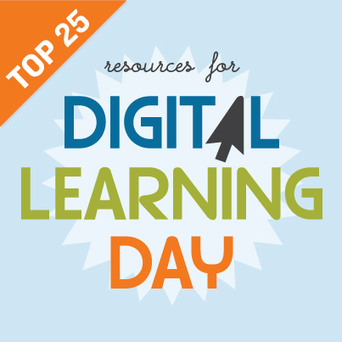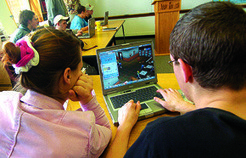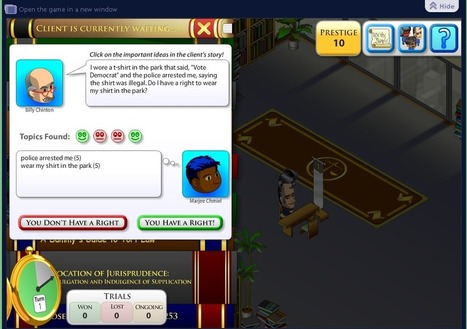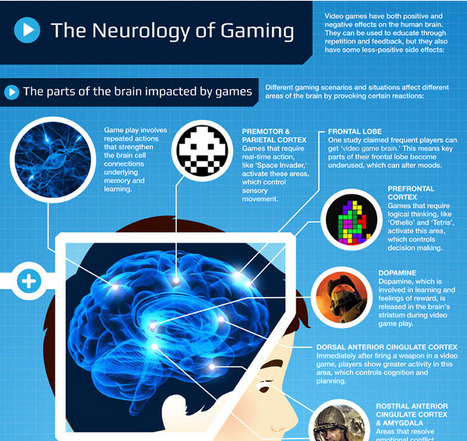One thousand: That’s approximately the number of instructional hours required of U.S. middle school and high school students each year. Four thousand: That’s approximately the number of hours of digital media content U.S. youths aged 8 to 18 absorb each year. (If you doubt that’s possible, be sure you’re taking...
Get Started for FREE
Sign up with Facebook Sign up with X
I don't have a Facebook or a X account
 Your new post is loading... Your new post is loading...
 Your new post is loading... Your new post is loading...

William Cadwallader's curator insight,
October 31, 2014 2:25 PM
I think they do thats why i don't play super violent games

Ryan McDonough's curator insight,
July 7, 2014 5:55 PM
Covering the pros and cons of gaming, at least in the minds of some educators. I've covered the pros in depth here, so I'll review the concerns here. Some feel like violence in games can be a poor influence on impressionable children. Opponents claim that kids play games at home so why should they play them at school? Difficulty monitoring online activity; funding and resource allocation are also major reasons some are apprehensive over video games in school. Do I personally agree with them? No. But I was also raised in an environment that nurtured my love for gaming. Some of these questions should merit constructive conversations at the next faculty/staff meeting. 
Pandawami29's curator insight,
October 31, 2014 11:49 AM
This little chart shows us the pros and cons of using video games for educational purposes. Also the background is from the mario games. |

mtmeme's curator insight,
July 28, 2013 11:17 AM
Spatial skill practice in a game environment - wonder if it would also be beneficial in rehab for stroke or neurological disorders.

John McDermott Neill's curator insight,
December 16, 2012 4:01 AM
Some interesting and surprising findings to make us think about our own preconceptions.
Manpreet Singh's curator insight,
March 20, 2016 9:52 PM
Depression is a common thing to happen and you don't even know you have depression until you don't know what the symptoms are. This trailer of depression is for young adults and adults who go through depression and they produced a video game to treat people who go through depression. It involves critical thinking and helps you to overcome depression by playing the game regularly and you will know that this video game is helping you to overcome depression in different situations.

Saptarsi Basu's curator insight,
October 24, 2014 11:37 AM
Play computer games and learn from it too... |
























Annie Paul Murphy writes an intriguing article that looks at what may be happening to students as more and more technology becomes a part of the school day. Check out these two facts.
"One thousand: That’s approximately the number of instructional hours required of U.S. middle school and high school students each year.
Four thousand: That’s approximately the number of hours of digital media content U.S. youths aged 8 to 18 absorb each year."
Murphy discusses work done by Patricia Greenfield, a developmental psychologist at UCLA. One of her points is that education at school is "formal education" while the time students spend out of school using digital media is "informal education." If this is accurate then would schools be better off having students "read copious amounts of information."
There is a discussion on how video games build spatial skills and inductive reasoning, and may help "their ability to divide their attention among many things happening at once on the screen" and much more.
This article may make your brain work as you wrap your mind around the information that is shared. If you are looking for an article to discuss with other teachers this might be one to choose.